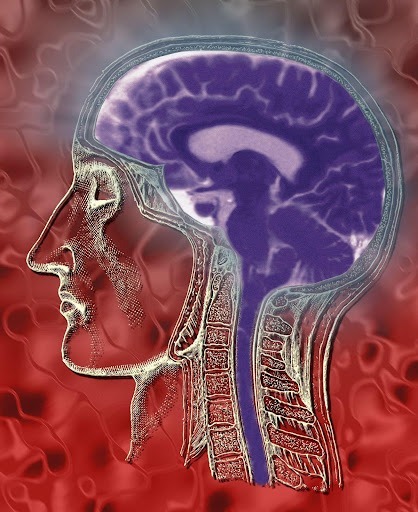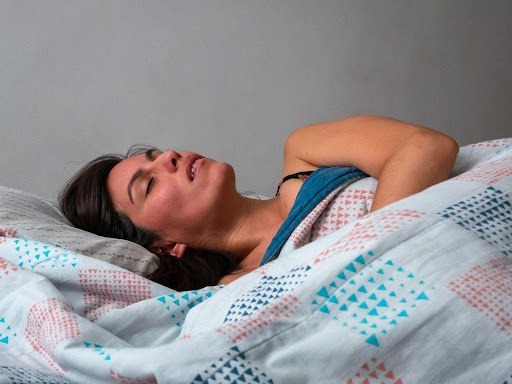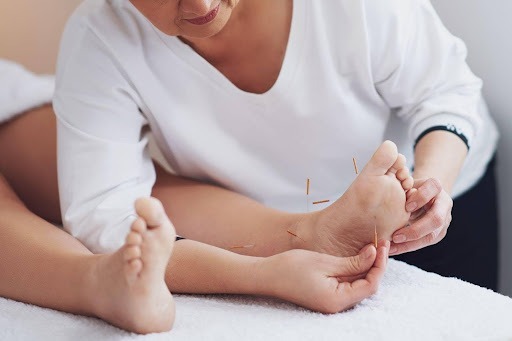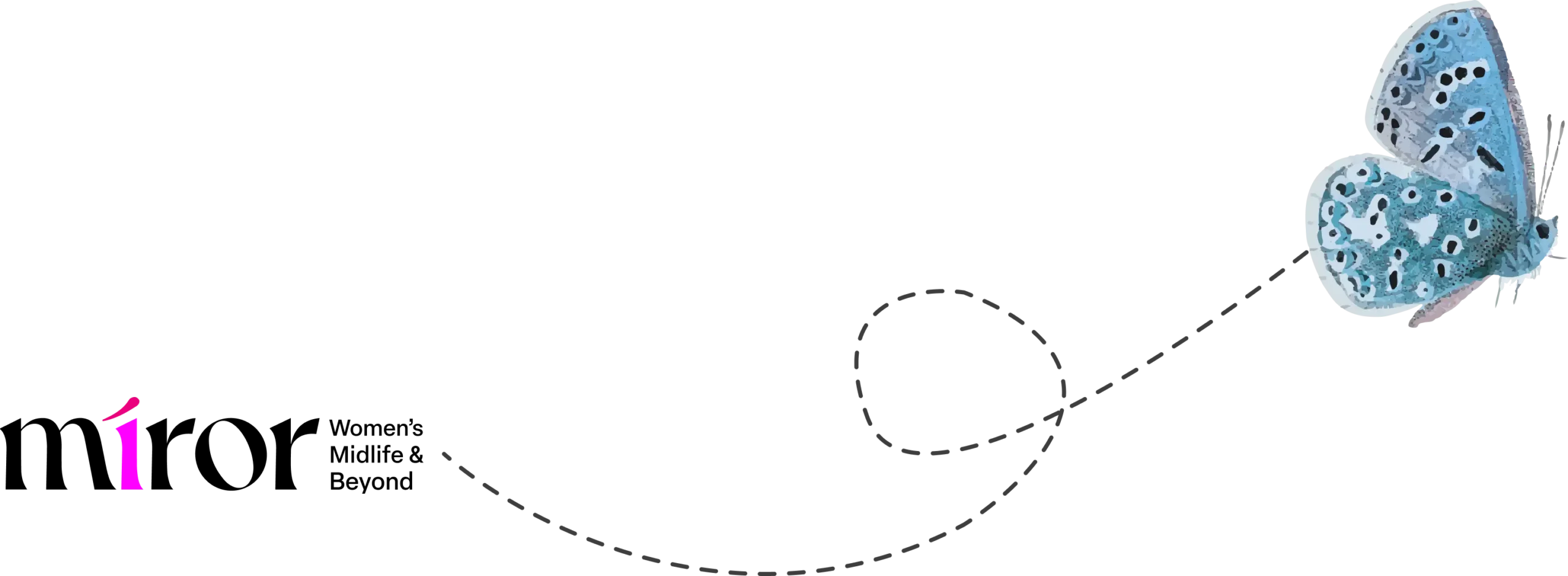The Ultimate Guide to Managing Hot Flashes in Menopause
Ladies, let’s talk about hot flashes in menopause.
If you’re over 35 and experiencing these sudden waves of heat that leave you feeling like you’re stuck in a sauna, you’re not alone. Hot flashes are one of the most common symptoms of perimenopause and menopause, and they can be incredibly disruptive. But what exactly are they? Why do they happen? And most importantly, how can you manage them?
What Are Hot Flashes in Menopause?
So, what is hot flashes in menopause? Simply put, a hot flash is a sudden feeling of intense warmth, typically over the face, neck, and chest. Your skin might redden, as if you’re blushing, and you may start to sweat profusely. This is often followed by a cold, clammy feeling as your body cools down. These episodes can last anywhere from a few seconds to several minutes and can occur several times a day or night. Hot flashes are a hallmark of the menopausal transition, but they can start during perimenopause—the time leading up to menopause—when hormone levels begin to fluctuate. Understanding what is hot flashes during menopause can help you better prepare and manage this common symptom.
Why Do Hot Flashes Happen?
To grasp why hot flashes in menopause occur, we need to delve into the hormonal changes happening in your body. During menopause, your ovaries gradually produce less estrogen and progesterone. These hormones are crucial for regulating your menstrual cycle, but they also play a role in controlling your body’s temperature.  The decline in estrogen levels affects the hypothalamus, the part of your brain that acts as your body’s thermostat. When estrogen drops, the hypothalamus may become more sensitive to slight changes in body temperature, triggering a hot flash as a way to cool down. Essentially, your body is overreacting to minor temperature shifts.
The decline in estrogen levels affects the hypothalamus, the part of your brain that acts as your body’s thermostat. When estrogen drops, the hypothalamus may become more sensitive to slight changes in body temperature, triggering a hot flash as a way to cool down. Essentially, your body is overreacting to minor temperature shifts.
Symptoms of Menopause Hot Flashes
 Recognizing menopause hot flash symptoms is the first step in managing them. Here are the common signs:
Recognizing menopause hot flash symptoms is the first step in managing them. Here are the common signs:
- Sudden warmth: A quick onset of heat, typically over the face, neck, and chest.
- Reddening skin: Your skin may turn red, similar to blushing or sunburn.
- Sweating: Intense perspiration, often followed by chills.
- Increased heart rate: Your heart might beat faster or feel like it’s pounding.
- Anxiety: Some women feel anxious or a sense of dread just before a hot flash starts.
- Chills: After the heat, you might feel a cold sensation as your body cools down.
These symptoms can be more severe at night, leading to night sweats that disrupt your sleep and leave you feeling exhausted the next day.
Treatment for Hot Flashes in Menopause
When it comes to hot flashes in menopause treatment, there’s no one-size-fits-all solution. Treatment often involves a combination of lifestyle changes, natural remedies, and medical interventions. Here are some options to consider:
Lifestyle Changes

- Stay Cool: Dress in layers so you can easily remove clothing when a hot flash strikes. Use fans and keep your home cool.
- Avoid Triggers: Spicy foods, caffeine, and alcohol can trigger hot flashes. Identify and avoid your specific triggers.
- Exercise Regularly: Regular physical activity can help reduce the frequency and severity of hot flashes.
- Stress Management: Practice relaxation techniques like yoga, meditation, or deep-breathing exercises to manage stress, which can exacerbate hot flashes.
Dietary Adjustments
Certain foods can help manage symptoms. 
- Soy Products: Soy contains phytoestrogens, plant-based compounds that can mimic estrogen in the body. Incorporate soy-rich foods like tofu, soy milk, and edamame into your diet.
- Omega-3 Fatty Acids: Found in fish like salmon and in flaxseeds, these can help balance hormones.
- Hydration: Drink plenty of water to help your body regulate its temperature.
Natural Remedies

- Herbal Supplements: Some women find relief with herbal supplements like black cohosh, evening primrose oil, or red clover. Always consult your healthcare provider before starting any new supplement.
- Acupuncture: Some studies suggest acupuncture can reduce the frequency and severity of hot flashes.
Medical Treatments
- Hormone Replacement Therapy (HRT): HRT can be highly effective for hot flashes but comes with potential risks. Discuss the benefits and risks with your healthcare provider.
- Non-Hormonal Medications: Certain antidepressants, anti-seizure medications, and blood pressure drugs can help reduce hot flashes. These can be good alternatives for women who can’t take HRT.
Prevention of Hot Flashes
While you can’t completely prevent hot flashes during menopause, there are strategies to minimize their impact: 
- Maintain a Healthy Weight: Being overweight can increase the frequency and severity of hot flashes. A balanced diet and regular exercise can help.
- Stay Hydrated: Drink plenty of water throughout the day to help regulate your body temperature.
- Sleep Smart: Use breathable, moisture-wicking bedding and pajamas. Keep your bedroom cool and well-ventilated.
- Quit Smoking: Smoking can exacerbate hot flashes and increase other menopause-related risks.
Wrapping it Up
Navigating hot flashes in menopause can be challenging, but understanding what is hot flashes in menopause, recognizing the symptoms, and exploring various treatment and prevention strategies can make this transition smoother. You’re not alone—millions of women go through this, and there are plenty of resources and treatments available to help you manage this common symptom.
Stories from the Community
Sometimes, the best advice comes from others who are walking the same path. Here are a few stories from women in our Miror community who have found ways to manage their menopause hot flash symptoms:
Prerana’s Story – “I was getting hot flashes multiple times a day, and it was really affecting my work and sleep. I started by making small changes, like keeping a fan at my desk and switching to lighter pajamas. But what really made a difference was adding more soy to my diet and practicing yoga. The combination of physical activity and a slight diet adjustment reduced the frequency of my hot flashes significantly.”
Anita’s Journey – “For me, acupuncture was a game-changer. I was skeptical at first, but after a few sessions, I noticed a decrease in the intensity of my hot flashes. It also helped me feel more balanced overall. Along with acupuncture, I made sure to stay hydrated and cut down on caffeine. These changes, although small, helped me manage my symptoms much better.”
Chandrakala’s Experience – “I struggled with hot flashes for a long time until I consulted my doctor about hormone replacement therapy. It was a big decision, but with careful monitoring and the right dosage, it really helped. I also made sure to maintain a healthy weight and avoid spicy foods, which were definite triggers for me. It’s been a journey, but finding the right treatment has made a huge difference.”
Looking Forward
As we continue to understand more about menopause and the various ways to manage its symptoms, it’s important to stay informed and proactive. Miror is committed to providing you with the latest research, tools, and support to help you navigate this transition smoothly. Join our community to connect with other women going through similar experiences. Sharing your story and hearing others can provide emotional support and valuable tips.
https://chat.whatsapp.com/G7JKOO6BhygDv5w6vFnp8O
Connect with our menopause experts and doctors on Miror app. Whether you’re looking for dietary advice, exercise routines, or stress management techniques, we’ve got you covered.
Join the Conversation
We’d love to hear from you! Have you found effective ways to manage your hot flashes? Share your tips and experiences in the comments below or join our online community to connect with other women who understand exactly what you’re going through.
If you have any questions or need personalized advice, don’t hesitate to reach out to us at Miror.
Together, we can make this journey a little bit easier. Stay cool, stay strong, and embrace this new chapter with grace and empowerment.
If you found this blog helpful, share it with your friends, and check out more of our content on managing menopause and living your best life!
Citations:
https://www.medicalnewstoday.com/articles/322351
https://www.healthline.com/health/menopause/understanding-hot-flashes
https://my.clevelandclinic.org/health/articles/15223-hot-flashes





